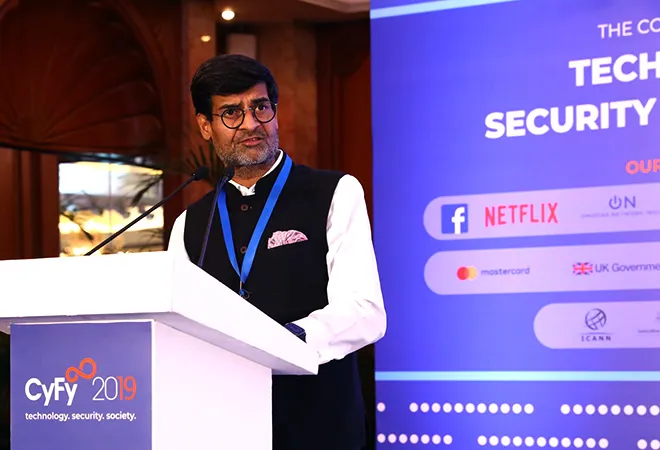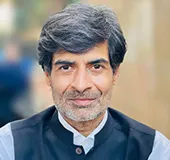
We meet for the 9th edition of CyFy in interesting times. The assumptions that have underpinned digital technologies since the inception of CyFy in 2013 have changed dramatically. There were two competing narratives then about the future of cyberspace and its relationship with society: the emancipatory potential of digital technology, as witnessed by episodes such as the Arab Spring, and the worrying implications of government abuse of internet platforms for surveillance, evidenced in the Snowden revelations. Eight editions later, six in New Delhi and two in Morocco, it is clear which way the pendulum has swung.
The democratic ideal of cyberspace has given way to concerns around privacy, concentration of wealth, and national security. The very platforms that enabled new forms of expression and supported new social coalitions have inadvertently created a sprawling apparatus for surveillance and exploitative control. The ubiquitous availability of data has allowed a plethora of actors to generate granular information about behavioural preferences—making the fickle human mind ever more vulnerable to influence and polarised thinking.
This is now the new normal. Two decades ago, the refrain — eloquently phrased by Prof Larry Lessig — was “code is law.” Today, it is more appropriate to say that code is life. Opaque algorithms, fuelled by what the Indian Supreme Court calls ‘dataveillance’, define the interactions of individuals and communities and their relationship with industry and the state. The boardrooms that develop these algorithms, meanwhile, remain answerable only to their shareholders (if at all), often at the expense of their customers and users. Frameworks for accountability in the digital age — whether from sovereigns or technology companies — have yet to emerge.
States have also taken note of these new tensions. Given the vast social and strategic implications of digital technologies, their evolution in the coming decade will undeniably be shaped by the strong arm and long reach of the state. Governments have instinctively spiralled themselves into a zero-sum race to lead in the development and deployment of these technologies. As a consequence, the internet is less global, less secure and less free than it has ever been at any time since its widespread adoption.
Taken together, these new realities have produced disorder in technological and social systems globally. Malicious actors have aggregated on social media to produce a fractured information environment, malicious actors have weaponised data and algorithms, while states are intent on erasing private spaces and exerting sovereign control over global flows of information. Two decades into the 21st century, the structural forces being driven by digital technologies appear to be leading us into a more polarized and fractured world.
All consequential evolutions in technologies have required societies to create new arrangements. In this, the past cannot help us. The velocity of change and disruption underway today is unprecedented. The real world is now complemented and implicated by the virtual world. This is a new domain altogether, and its governance is not bound by traditional rules and constraints. The 25 conversations we have curated at CyFy 2019 are designed to acknowledge this new reality and to outline pragmatic solutions for this networked world.
Over 130 speakers and delegates from nearly 40 countries, including 10 cyber-ambassadors and government representatives, will spend the next three days in New Delhi to join us for this crucial effort. As always, we strive to create new coalitions and norms that can address comprehensively the problems of our digital world. We are grateful to our partners, speakers and delegates for joining us to debate these important issues. I am confident that the ideas we hear at CyFy 2019 will inevitably lead to a new consensus for our tech futures.
The views expressed above belong to the author(s). ORF research and analyses now available on Telegram! Click here to access our curated content — blogs, longforms and interviews.




 PREV
PREV


